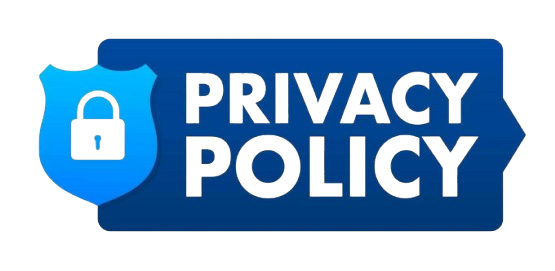Medicare Telehealth changes 2025
What’s Changing in medicare telehealth - What Providers Should Do About It

BLOG OUTLINE
- Understanding the September 30, 2025 Medicare Telehealth Deadline
- What Stays in Place Until the Deadline?
- The Changes After September 30, 2025
- What Telehealth Services Will Still Be Covered?
- The Impact on Provider Reimbursement
- How Providers Can Prepare for the Transition
- Medicare Telehealth Codes: What’s Covered and What May Be Removed After 2025
- Frequently Asked Questions
- Final Thoughts
Medicare telehealth has experienced growth due to COVID-19 pandemic, becoming an essential tool for providing healthcare remotely. As Medicare led the charge in this digital transformation, many healthcare providers expanded their virtual medical care services, offering patients better access to care and improving patient satisfaction. At the same time, providers maintained their revenue streams by adapting to a new, virtual care environment.
However, as we move toward the end of 2025, several policies that facilitated this expansion are set to expire. With temporary flexibilities ending on September 30, 2025, telehealth care providers must prepare for a more regulated, compliant virtual care environment. In this blog, you will learn what is changing, how provider reimbursement will be impacted, and how healthcare practices can get ready for these medicare telehealth changes.
Understanding the September 30, 2025 telehealth Deadline
As the COVID-19 pandemic started, Congress and CMS relaxed many long-standing restrictions on medicare telehealth. These changes allowed beneficiaries to access care from home, even if they lived in urban areas or were not physically present in a clinic or hospital. This shift to virtual care bridged critical access gaps, especially during the height of lockdowns and public health surges.
But these flexibilities were tied to the public health emergency, which ended in May 2023. While Congress extended most tele care provisions through September 30, 2025 by medicare, telehealth providers will face significant reimbursement adjustments once these extensions expire. Unless new legislation is passed, many of the temporary policies will disappear, and Medicare telehealth coverage will return to pre-pandemic restrictions.

What Stays in Place Until the MEDICARE TELEHEALTH Deadline?
Until September 30, 2025, telehealth providers under medicare can still enjoy several key flexibilities. Medicare will continue to allow patients to receive virtual care services at different place of service (POS), and be reimbursed for services delivered through audio-only technology, particularly for mental health and behavioral health visits.
A wide range of healthcare professionals including physicians, nurse practitioners, physical therapists, speech-language pathologists, and licensed clinical social workers remain eligible to deliver and bill for Medicare telehealth services. Additionally, Federally Qualified Health Centers (FQHCs) and Rural Health Clinics (RHCs) can act as distant-site providers, allowing them to deliver and bill for telehealth services directly.
For Insurance Credentialing, Medical Billing Services and other services
medicare telehealth After September 30, 2025
Once September 30, 2025 arrives, several flexibilities will expire, drastically changing the landscape of Medicare telehealth.
- First, the longstanding geographic and originating site restrictions will be reinstated. This means that patients will need to be in rural areas and physically present at qualifying medical facilities, like hospitals or clinics, to qualify for telehealth reimbursement. Home-based telehealth visits will no longer be reimbursable, a significant shift for both patients and providers who have adapted to receiving care remotely from home.
- Another major change is the expected rollback of audio-only telehealth coverage. While certain mental health services may still be reimbursed when delivered by phone, audio-only evaluation and management (E/M) codes—such as 99441 through 99443—are expected to become non-reimbursable. Providers will need to transition to video-enabled platforms to continue offering remote care and meet the updated documentation requirements, particularly for behavioral health services.
- Additionally, the list of providers eligible to bill for telehealth services will likely shrink. Professionals like physical therapists, occupational therapists, and speech-language pathologists—who were temporarily allowed to offer Medicare telehealth—may lose that ability unless Congress passes new legislation. Similarly, FQHCs and RHCs may no longer qualify as distant-site providers, limiting their ability to provide telehealth unless the patient is physically present at the clinic.
What medicare Telehealth Services Will Still Be Covered?

Despite some restrictions, many telehealth services are expected to remain reimbursable. Established Medicare telehealth codes—such as G0425 through G0427 for inpatient or emergency department consultation will continue to be reimbursed if the patient is located at an approved facility. Codes like G0406–G0408 for follow-up inpatient consults are also expected to remain billable.
For behavioral health services, codes such as 90832 through 90838—which represent various lengths of psychotherapy sessions—will still be covered when delivered via video. In some cases, these codes may even remain reimbursable for audio-only sessions, provided certain documentation requirements are met. E-visit codes, like 99421 through 99423 for asynchronous communication via patient portals, will likely continue to be reimbursed as part of Medicare’s virtual communication policy.
However, common codes like 99441–99443 for audio-only phone consultations will likely become non-billable. Additionally, codes like G2252 for brief telehealth services (11–20 minutes) and G0071 for virtual communication services for FQHCs and RHCs may be phased out or severely limited.
The changes in Medicare telehealth coverage will have varying impacts depending on factors such as patient population, specialty, and practice location. Providers in urban areas may see a sharp drop in telehealth-eligible visits as geographic restrictions limit coverage to rural patients. Practices that have relied heavily on telehealth, especially for routine follow-up or chronic care management, may experience significant losses in billable services. Moreover, failing to comply with the updated Medicare telehealth guidelines could result in claim denials, overpayment recoupments, and audits. Providers must be meticulous about documenting patient location, modality used (video vs. audio), and compliance with in-person visit requirements, especially for behavioral health.
How Providers Can Prepare for medicare telehealth Transition
To stay ahead of these changes, practices should start by auditing their current telehealth billing. Evaluate which telehealth CPT or HCPCS codes are most commonly used and determine whether they will remain billable after September 2025. Practices should also assess their patient base, noting the number of rural versus urban patients, as well as how many services are being delivered via audio-only.
Adopting a hybrid care strategy that blends in-person and virtual visits will provide flexibility as you adjust to these changes. For example, prioritize in-person visits for new patients or more complex cases, while offering virtual check-ins for behavioral health or chronic disease management, as long as it aligns with updated Medicare rules.
Staying informed is critical to navigating the post-2025 telehealth policy changes. Keep an eye on CMS updates, including the 2026 Medicare Physician Fee Schedule proposed rule, which will likely address telehealth policies in detail. Professional organizations like the AMA and AAPC also provide valuable resources to help practices stay compliant with Medicare telehealth regulations. Finally, be sure to update your documentation templates. For mental health providers, this includes documenting the need for audio-only services and ensuring that all in-person visits are appropriately tracked.
Telehealth Codes REIMBURSEMENT BEFORE AND AFTER
| Aspect | Through September 30, 2025 | After October 1, 2025 |
|---|---|---|
| Telehealth CPT Codes | Use standard E/M codes (99202–99215) for telehealth visits; AMA 98000–98015 not used by Medicare. | Same E/M codes continue; AMA 98000–98015 still not used by Medicare. |
| Audio/Video Modifiers | Modifier 95 for audio-video; Modifier 93 for audio-only with documentation. | Same use of Modifiers 95 (AV) and 93 (audio-only) with documentation. |
| Place of Service (POS) | POS 10 when patient is at home; POS 02 for telehealth other than home. | Same POS 10/02 usage. |
| Virtual Check-In | CPT 98016 used for brief communication; replaces G2012. | CPT 98016 continues; G2012 not used. |
| Where Services Can Be Provided | Non-behavioral services allowed from home; no geographic/originating-site limits. | Geographic/originating-site limits return for most non-behavioral services (approved rural/clinic site required). Behavioral health/ESRD/stroke exceptions continue. |
Summary of Key Billing Practices
- Telehealth E/M (99202–99215): Use Modifier 95 (AV) or 93 (audio-only) and POS 10/02. After Oct 1, 2025, site eligibility tightens for non-behavioral services.
- Audio-only: Allowed with Modifier 93 and rationale; after Oct 1, 2025, generally limited to exceptions (e.g., behavioral health) for home-based care.
- Virtual brief check-ins: Bill with CPT 98016 (replacing G2012) before and after Oct 1, 2025.
| Code / Class | Through Sept 30, 2025 | After Oct 1, 2025 |
|---|---|---|
| 99202–99215 (+ Mods) | 95 (AV) or 93 (audio-only); POS 10 or 02. | Same coding, but more site restrictions for non-behavioral telehealth. |
| CPT 98000–98015 | Not accepted by Medicare. | Still not accepted by Medicare. |
| CPT 98016 (Check-In) | Accepted (replaces G2012). | Continues to be accepted. |
Frequently Asked Questions
What changes are happening to Medicare telehealth after September 30, 2025?
Will audio-only telehealth services still be reimbursed after 2025?
Which Medicare telehealth codes will still be reimbursed after the changes?
How will these changes impact providers who have relied heavily on telehealth?
What steps can healthcare providers take to prepare for these changes?
Will Federally Qualified Health Centers (FQHCs) and Rural Health Clinics (RHCs) still be able to offer telehealth after September 2025?
Can Medicare beneficiaries still receive telehealth services from home?
What should healthcare providers do if they are unsure about the reimbursement status of a code?
Are there any opportunities for new telehealth policies to be introduced before the September 2025 deadline?
Final Thoughts
While Medicare telehealth is not going away, however, the reimbursements may change dramatically. What started as a temporary measure during the pandemic is transitioning into a more controlled and selective model of virtual care. Practices that begin preparing now, adjust their workflows, and understand the new rules will be better positioned for success in the evolving telehealth landscape.
At Medstates, we specialize in helping healthcare providers navigate regulatory changes and reimbursement challenges. From billing compliance to telehealth documentation support and providing local SEO services for medical practice to stay competitive, our team is ready to guide your practice through the shifting Medicare telehealth landscape.
Need help preparing for the transition? Contact Medstates today to ensure your practice’s revenue stays strong, no matter how the rules evolve. Call (929) 621 6059 to book a free consultation or email support@medstates.com for more info


